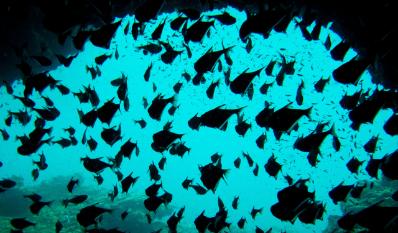Potential of deep-sea fish for feed and pharmaceuticals – The mesopelagic zone, often called the twilight zone, harbours unexplored potential for both the aquaculture and pharmaceutical industries. Recent studies conducted by Nofima have examined the properties of deep-sea fish species such as hatchetfish and lanternfish, which could bring significant benefits to farmed salmon feed production.
These species, often overlooked due to the complexities of harvesting them, have been shown to be rich in essential nutrients. Fishmeal derived from these species contains high levels of protein and fat, making it an excellent feed ingredient. In particular, feeds made from the fish accepts have demonstrated the ability to promote efficient growth in salmon, equalling or surpassing traditional feed options. Remarkably, the meal from these fish is rich in valuable fatty acids and phospholipids, known to have a positive impact on the digestive health of salmon.
In addition to feed, hatchet and lantern fish offer promising applications in the health sector. These species contain bioactive peptides that could play an important role in the pharmaceutical industry. Initial findings suggest that these peptides may possess anti-inflammatory properties, which could be used to develop treatments for the management of pain and chronic inflammatory conditions. In addition, these substances show potential in regulating blood pressure and blood sugar levels, opening up new possibilities for the management of cardiovascular and metabolic diseases.
Although the opportunities presented by mesopelagic fish are considerable, challenges remain. Mapping the stocks of these deep-sea species, locating their habitats and managing the complexities associated with their capture, handling and conservation are key steps in making their commercial exploitation sustainable.
The integration of deep-sea species into aquaculture feeds and health products offers promise for the future. By overcoming obstacles related to harvesting and processing these fish, the industry could unlock new sustainable sources of nutrition and bioactive compounds, with benefits for both aquaculture and pharmaceuticals.
Potential of deep-sea fish for feed and pharmaceuticals







